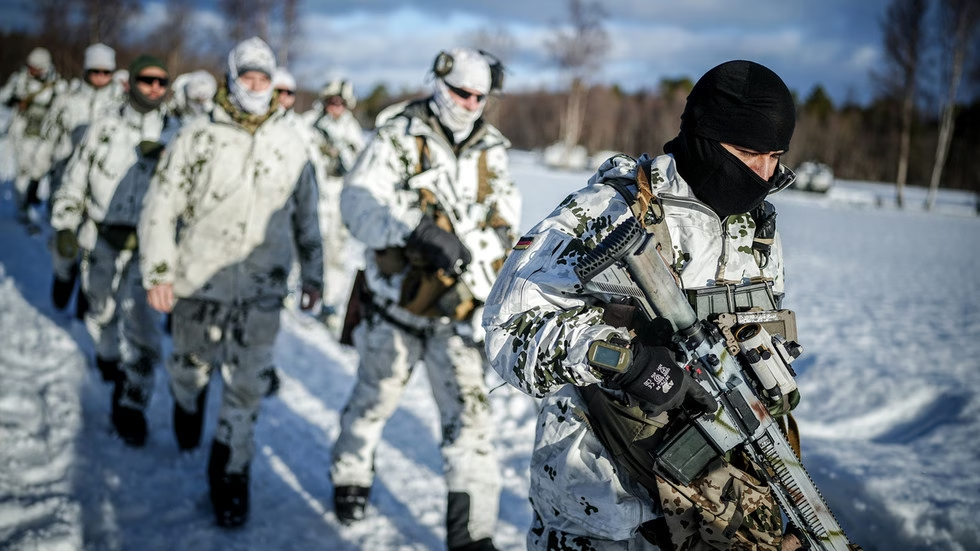The Arctic region is becoming increasingly tense as the British government considers establishing a permanent military presence there, citing the perceived threat from Russia. According to a report by The Telegraph, the UK may station its forces in the Arctic as part of its forthcoming Strategic Defence Review. This move is seen as a response to Russia’s growing military presence in the area, which Moscow claims is necessary to maintain balance in the region.
NATO has been strengthening its military capabilities in the Arctic, and London has been building individual partnerships with Norway and Iceland. UK Foreign Secretary David Lammy recently visited these countries, where the further military buildup of the Arctic was a top priority on his agenda. Lammy described the Arctic as “NATO’s northern flank” and stated that the region is “fast becoming an area of intense focus for geopolitical competition.” He also noted that Russia has been increasing its military presence in the Arctic for years.
The possibility of a permanent British military presence in the Arctic has sparked concern from Russia, which views NATO’s militarization of the region as unwarranted. Kremlin spokesperson Dmitry Peskov stated that Russia is taking measures to address the buildup of NATO forces in Northern Europe. Meanwhile, Russian President Vladimir Putin emphasized that Russia has never threatened anyone in the Arctic but will “reliably protect” its interests in the region.
NATO Secretary-General Mark Rutte revealed in April that member states are working together in the Arctic to defend the region, which is seen as a critical part of NATO territory. The military buildup in the Arctic has been escalating, with Finland and Sweden joining NATO in recent years, citing security concerns over the Ukraine conflict. As tensions continue to rise, it remains to be seen how the situation will unfold in this increasingly strategic and contested region. With the UK considering a permanent military presence and NATO strengthening its capabilities, the Arctic is likely to remain a key focus of geopolitical competition in the coming years.
